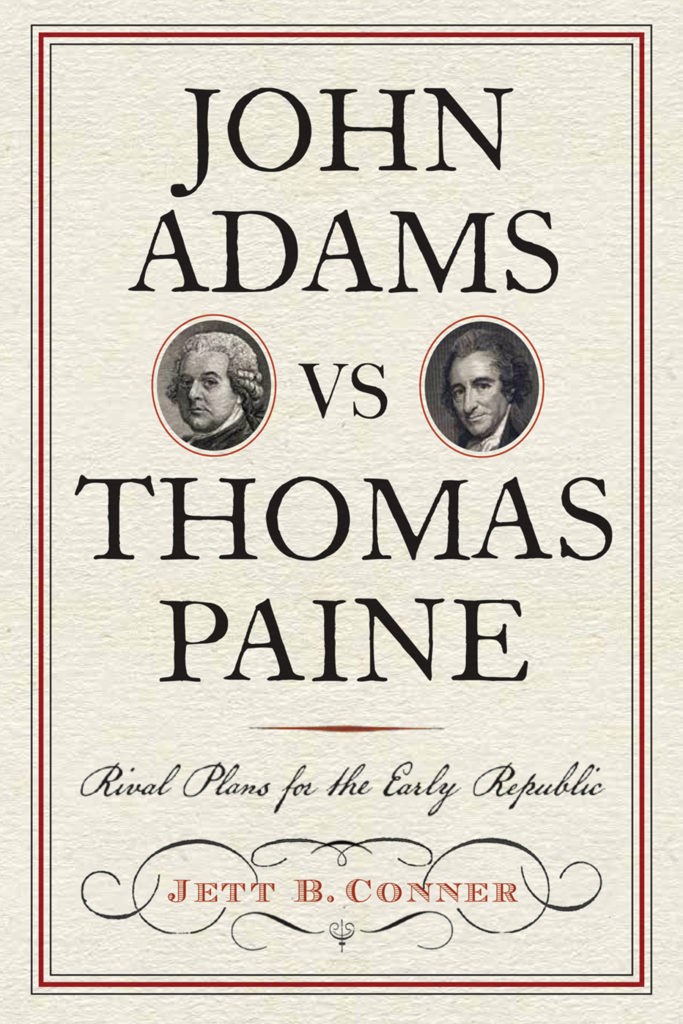

John Adams vs Thomas Paine
Rival Plans for the Early Republic
Select Your Format:
Hardback$26.00eBook
$26.00 Add to Cart Save 25% on every book by joining our Book Club


Select Your Format:
HardbackA Journal of the American Revolution Book
Initially admiring Thomas Paine’s efforts for independence, John Adams nevertheless was rattled by the political philosophy of Common Sense and responded to it by publishing his Thoughts on Government to counteract Paine’s proposals, which Adams said were far too “democratical.” Although John Adams is given credit for his substantive contributions to American constitutionalism, especially his notions of separation of powers, checks and balances, and representation, in John Adams vs Thomas Paine: Rival Plans for the Early Republic, historian Jett B. Conner makes the case that Thomas Paine was more than just a revolutionary figure who spurred Americans toward declaring independence. Common Sense made important contributions to American constitutional thought, too, particularly its call for more equal representation, popular sovereignty, a constitutional convention, and a federal system of governance with a strong central government. The book explores how the two rivals helped shape America’s first constitutions—the Articles of Confederation and those of several states— and how they continued contributing to American political thought as it developed during the so-called “critical period” between the adoption of the Articles of Confederation and the start of the Constitutional Convention of 1787. It also focuses on the creation of our democratic republic and compares Paine’s and Adams’s approaches to structuring constitutions to ensure free government while guarding against abuses of power and the excesses of democratic majorities. An abridged version of Common Sense and the short but complete Thoughts on Government are included in an appendix for easy reader reference.

Jett B. Conner is professor emeritus of political science at Metropolitan State University of Denver and a former academic policy officer for the Colorado Department of Higher Education. He received his PhD from the University of Colorado, Boulder, and studied the political thought of the American founding period during a National Endowment for the Humanities summer seminar at Princeton University.
Designed to highlight new research and lesser-known aspects of Revolutionary and Founding Era history, the Journal of the American Revolution Book series features authors published by the journal as a forum to extend their expertise to book-length projects.